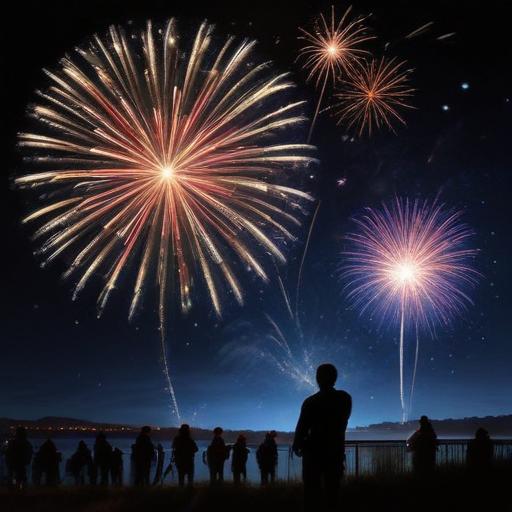The Fourth of July, known as Independence Day in the United States, has been a cherished national celebration since 1776, with fireworks illuminating the night sky alongside festivities in cities and towns across the country. This explosive tradition is rooted in the early celebrations that emerged even before the Revolutionary War officially concluded.
The origins of Independence Day celebrations trace back to July 2, 1776, when the Second Continental Congress voted for independence from Great Britain. John Adams famously predicted that this date would be a day for celebration, envisioning events filled with “Pomp and Parade…Games, Sports, Guns, Bells, Bonfires and Illuminations.” Though the official Declaration of Independence was adopted two days later on July 4, this day ultimately became synonymous with the birth of the nation and the pursuit of freedom.
Fireworks became a staple of these celebrations, particularly following the first public readings of the Declaration of Independence. The inaugural organized celebrations took place in Philadelphia on July 4, 1777, featuring a cannon salute and the night capped off with a spectacular display of fireworks, which was noted in local publications. This event set the precedent for the firework displays that would follow across the United States each Fourth of July.
While Americans are well known for their grand firework shows, the history of fireworks actually dates back to ancient China, where simple firecrackers originated. The invention of gunpowder helped transform these early pyrotechnics into more elaborate displays, leading European settlers to incorporate similar traditions into their own celebrations once they arrived in America.
By 1781, Massachusetts became the first state to recognize July Fourth as an official holiday, and the observance gradually gained popularity. In 1870, Congress declared Independence Day a federal holiday, marking its status as a significant secular occasion in the American calendar. Federal employees have enjoyed a paid holiday on this day since 1941, solidifying its importance in American culture.
As we celebrate another Fourth of July, the tradition of fireworks continues to symbolize the joy of freedom and unity. The stunning displays overhead remind us of our shared history and the ongoing journey toward liberty and equality in the United States.
